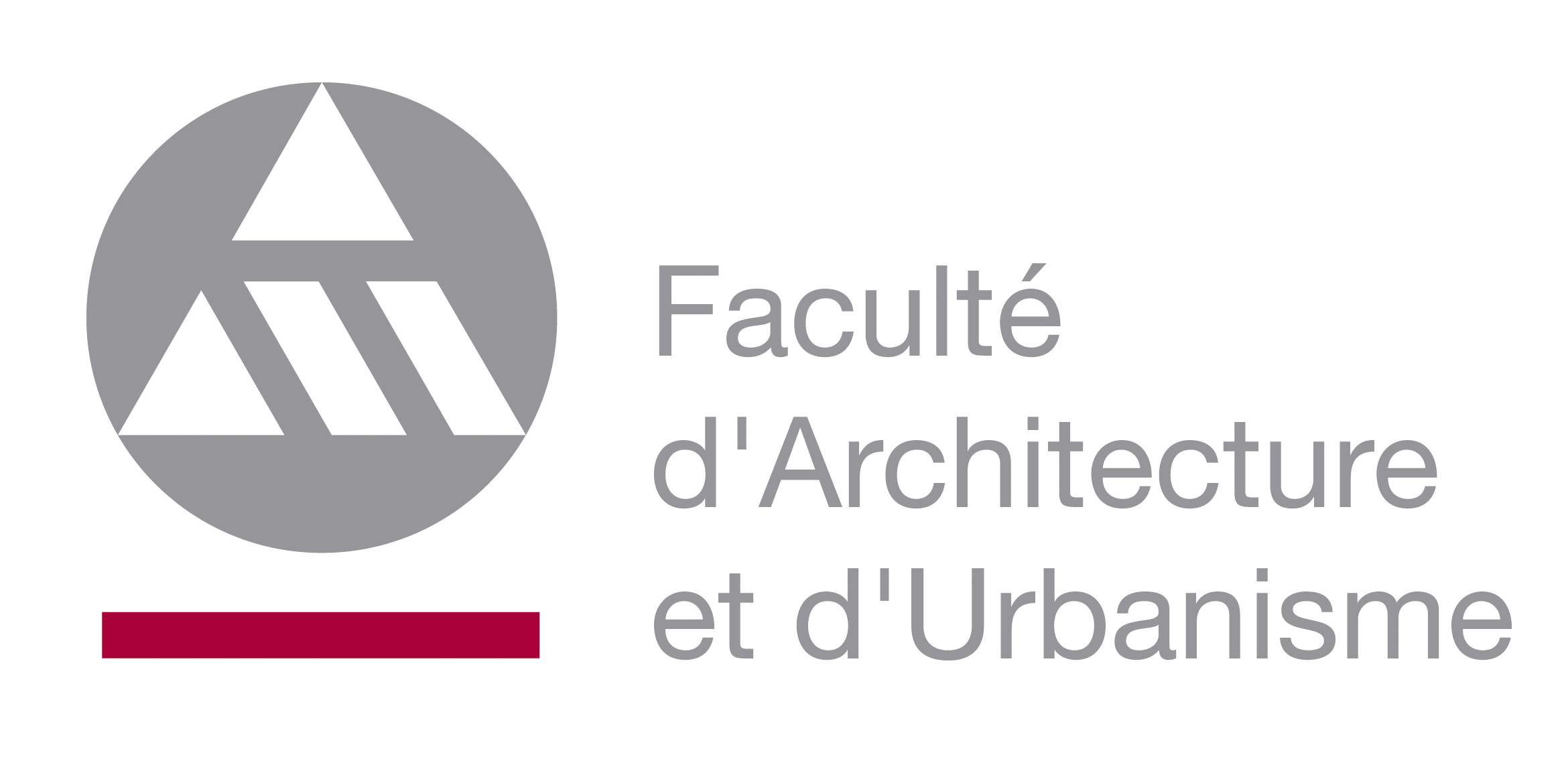 | Study programme 2021-2022 | Français | |
 | Environmental approach to land use planning | ||
Programme component of Master's in Architecture : Specialist Focus on Urban Planning à la Faculty of Architecture and Urban Planning |
| Code | Type | Head of UE | Department’s contact details | Teacher(s) |
|---|---|---|---|---|
| UA-M2-FINURB-004-M | Compulsory UE | PAIRON Marie | A520 - Service des Projets, Ville et Territoire |
|
| Language of instruction | Language of assessment | HT(*) | HTPE(*) | HTPS(*) | HR(*) | HD(*) | Credits | Weighting | Term |
|---|---|---|---|---|---|---|---|---|---|
| Français | 12 | 12 | 0 | 0 | 0 | 2 | 2.00 | 2nd term |
| AA Code | Teaching Activity (AA) | HT(*) | HTPE(*) | HTPS(*) | HR(*) | HD(*) | Term | Weighting |
|---|---|---|---|---|---|---|---|---|
| A-PRVT-925 | Environmental approach to land use planning | 12 | 12 | 0 | 0 | 0 | Q2 | 100.00% |
| Programme component |
|---|
Objectives of Programme's Learning Outcomes
- Instruct a question on architecture and urban planning
- Develop teamwork
- Finalise architecture and urban planning projects adapted to a context
- Develop an identified spatial response
- Demonstrate innovation and creativity in constantly evolving situations
- Interact with all actors
- Integrate and work in a team
- Make choices
- Demonstrate reflexivity, openness and initiative
- Demonstrate independence of thought and action.
- Instruct a question on architecture and urban planning - URBA
- Identify the different working hypotheses in relation to a planning problem
- Identify and articulate the various components constituting an urban and territorial context
- Master contemporary social issues of land
- Develop teamwork
- Finalise architecture and urban planning projects adapted to a context
- Develop an identified spatial response
- Adopt a scientific prospective approach
- Demonstrate innovation and creativity in constantly evolving situations
- Interact with all actors
- Integrate and work in a team
- Make choices
- Demonstrate reflexivity, openness and initiative
- Demonstrate independence of thought and action.
Learning Outcomes of UE
Transmit the necessary principles and tools to future designers likely to promote a sustainable development of territories, respectful not only of the environment but also of the landscape, quality of life and energy consumption.
At the end of this course, the student will be able to :
- Understand the issues related to the resources scarcity, pollution, the erosion of biodiversity and environmental risks.
- Know the spatial scope of these different themes and know where to look for the spatial data necessary to take them into account in the development of a given project.
- Apply the principles and tools necessary to promote sustainable urban development.
- understand the differences between the different strategic environmental assessments.
- Understand how impacts on different environmental issues can be measured, calculated, and understood, and how to quantify or qualify them if quantification is difficult.
Content of UE
The first module focuses on a more in-depth introduction to environmental issues, the spatial tools available, and how to take them into account in concrete examples of landscape and urban planning.
The second module will focus on strategic environmental assessments, impact studies and notices in order to answer the question: How to measure the environmental impacts of the implementation of new activities and infrastructures in projects? This will be an opportunity to see how to take into account the impacts on the environmental issues discussed in the first module.
The third module presents the different planning policies and, with the help of an example, how to take the environment into account in the municipal planning tool (SDC). It is therefore a question of understanding how to integrate environmental objectives into land-use planning policies in order to answer the following questions: how to reduce pollution and the greenhouse effect, preserve biodiversity, etc. through the management of soil, water, waste and biodiversity? With what design approaches and technical devices? How to integrate these concerns through an approach that takes into account the temporalities of territorial development? How to anticipate them in the perspective of the elaboration of a development plan?
Prior Experience
Not applicable
Type of Assessment for UE in Q2
- Presentation and/or works
Q2 UE Assessment Comments
The group presentation grade will be based on the analysis of an environmental issue that has been the subject of exercises throughout the course.
The individual presentation rating will be given to the student's presentation of a specific design to address the environmental issue raised.
The evaluation criteria for the exercise that will be used are: critical thinking developed in the analysis, understanding of the specificities of the chosen site, analytical and synthetic thinking in the presentation.
Type of Assessment for UE in Q3
- Oral examination
Q3 UE Assessment Comments
The evaluation criteria for the exercise that will be used are: critical thinking developed in the analysis, understanding of the specificities of the chosen site, analytical and synthetic thinking in the presentation.
Type of Teaching Activity/Activities
| AA | Type of Teaching Activity/Activities |
|---|---|
| A-PRVT-925 |
|
Mode of delivery
| AA | Mode of delivery |
|---|---|
| A-PRVT-925 |
|
Required Reading
| AA | |
|---|---|
| A-PRVT-925 |
Required Learning Resources/Tools
| AA | Required Learning Resources/Tools |
|---|---|
| A-PRVT-925 | Power Point presentations |
Recommended Reading
| AA | |
|---|---|
| A-PRVT-925 |
Recommended Learning Resources/Tools
| AA | Recommended Learning Resources/Tools |
|---|---|
| A-PRVT-925 | - Scientific papers |
Other Recommended Reading
| AA | Other Recommended Reading |
|---|---|
| A-PRVT-925 | Not applicable |
Grade Deferrals of AAs from one year to the next
| AA | Grade Deferrals of AAs from one year to the next |
|---|---|
| A-PRVT-925 | Authorized |